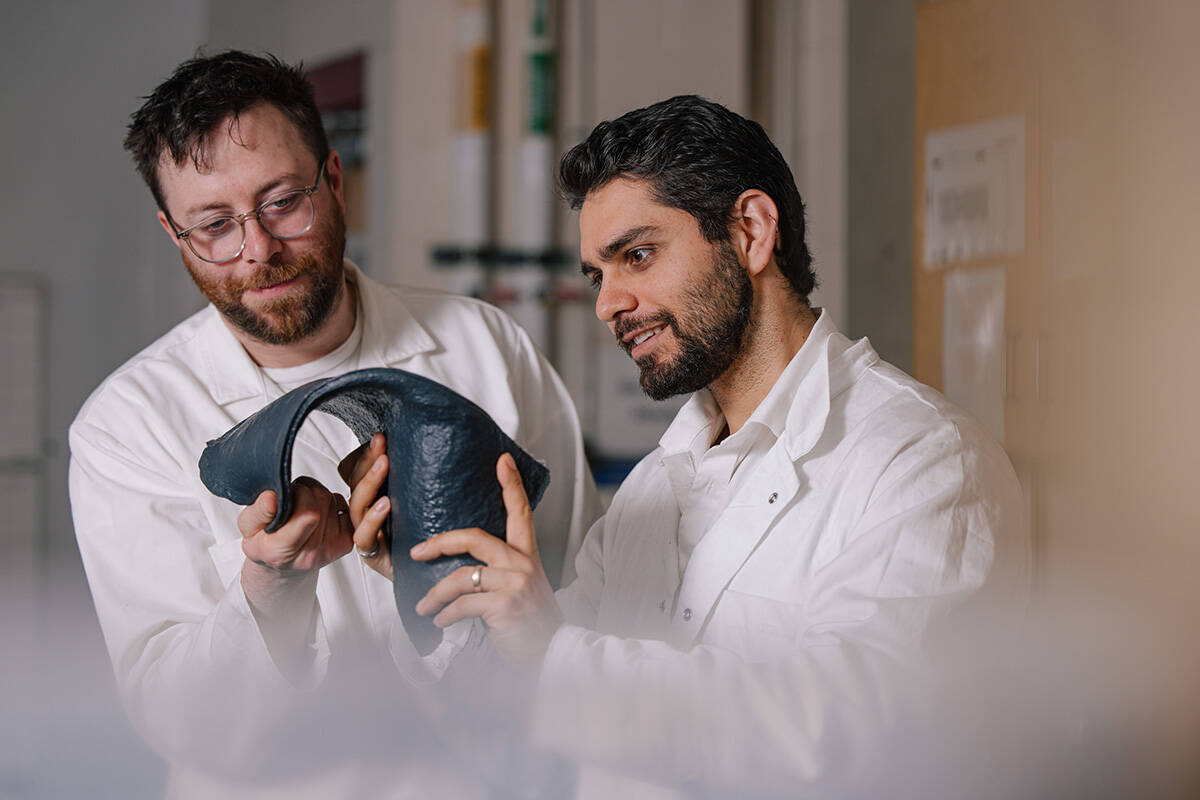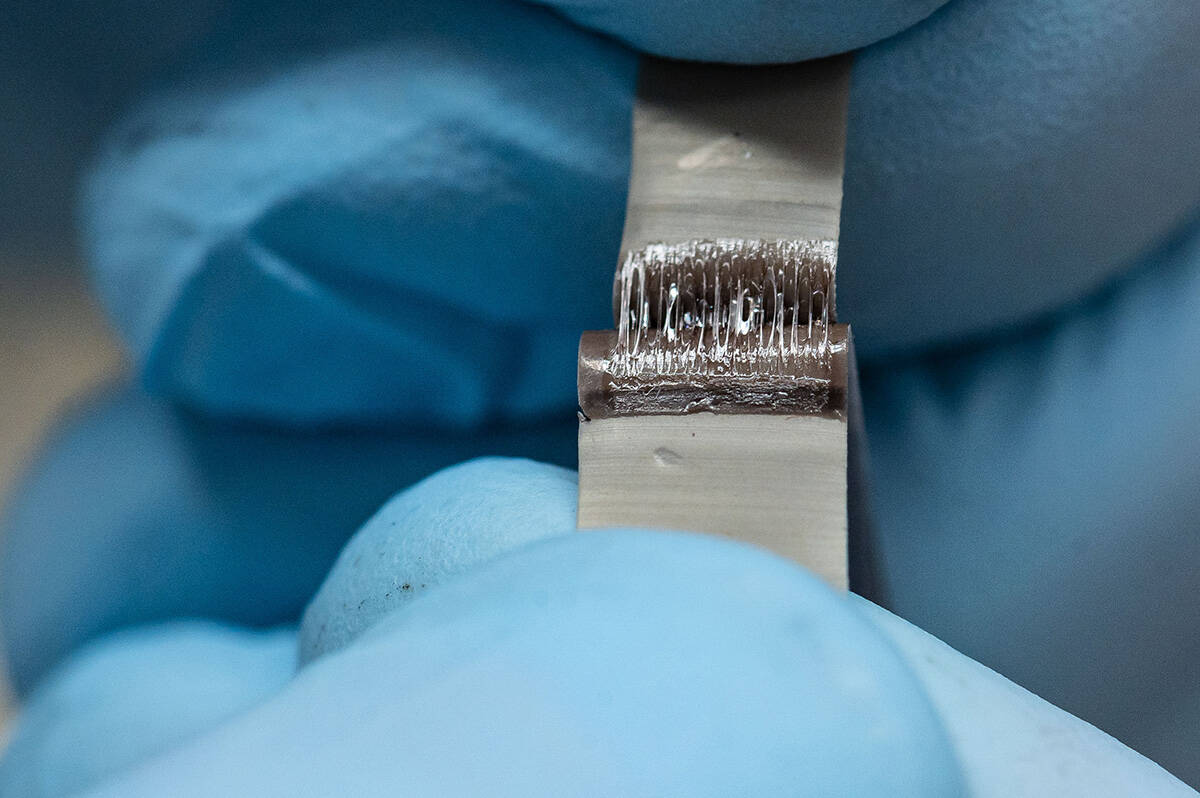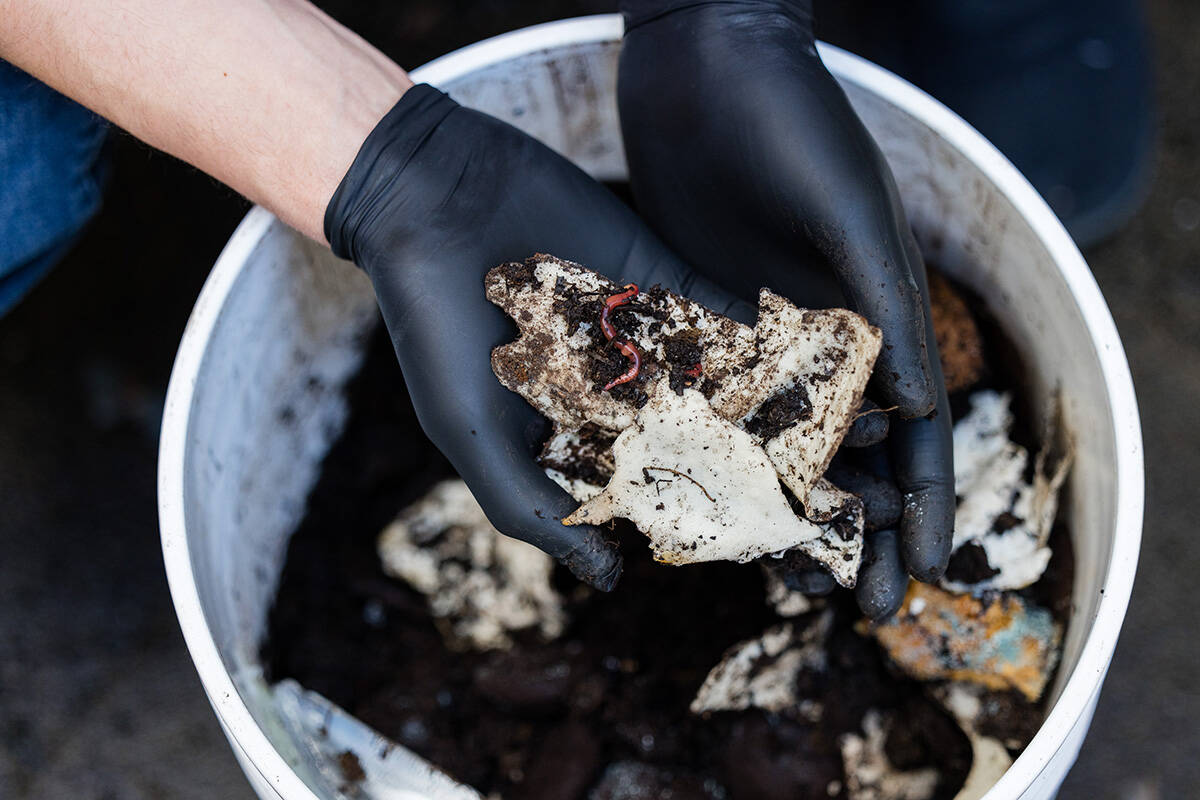University of British Columbia research teams have invented two products that could curb plastic pollution: one to extend the life of plastics and one to replace them entirely.
The first is a polymer coating with self-healing and weather-resistant qualities, while the second is a compostable material made out of wood fibre and kelp.
Damon Gilmour is the co-founder of the polymer company, A20 Advanced Materials Inc. He said their product’s unique ability to rebuild itself when its torn or scratched could significantly increase the lifespan of any material coated in it.
“You could almost call these materials alive. They have the ability to respond to stimuli and are self-healing,” he said in a news release.
The team has already received interest from battery manufacturers looking to protect phones and energy storage devices, but says it plans to target other industries too. The textile industry, for instance, is a known major source of microplastic pollution and could benefit from the polymer.
READ ALSO: Your laundry could be hurting the oceans, study finds
While the coating may slow the pollution problem, another UBC team is hoping to solve it entirely.
Biofirm is a thin film formed from a combination of kelp and wood fibre. It can be used as an alternative to plastic agricultural mulch films to regulate soil moisture, or as a packaging material for products like beverage lids and takeout containers, according to co-founder and CEO Jordan MacKenzie.
“Most plastic mulch is made from polyethylene (PE) because it’s cheap and durable, but PE can stay in the soil for decades and cause significant environmental contamination,” he said in a news release. “As well, food packaging waste is a long-standing problem – tonnes of beverage lids end up in the landfill because they’re almost impossible to recycle.”
MacKenzie and fellow co-founder Mark Martinez said the construction of the material was inspired by spider’s dragline silk. It’s made without any heat and can be pressed into any desired shape.
Martinez said they’re working on developing biodegradable bioplastic tubing to be used in hospitals.
Once composted, Biofirm can be broken down into a handful of scraps within a month or two, according to the researchers. It was recently named among the 50 most investable clean tech ventures for 2021, and Martinez and MacKenzie plan to start selling it commercially in 2023.
“We’re now at a stage where we can compete in cost and performance against some of the most common plastics,” MacKenzie said.
Both research teams aim to make a dent in the millions of tonnes of plastic polluted in the world every year.
READ ALSO: It’s time to end ‘suffocating’ plastic pollution along B.C. shorelines, advocates urge
@janeskrypnek
jane.skrypnek@bpdigital.ca
Like us on Facebook and follow us on Twitter.
EnvironmentOcean ProtectionPlastic wasteplastics projectsresearchScienceUBC



